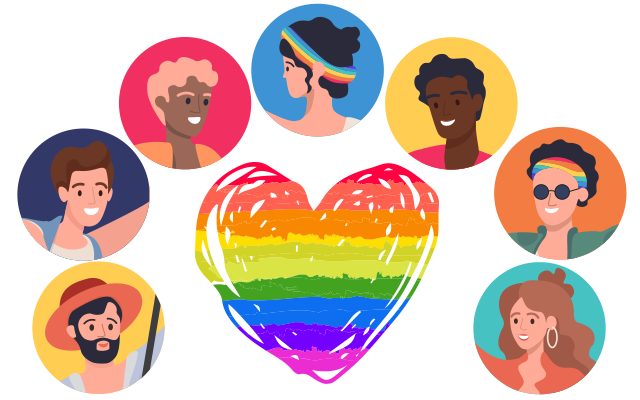Sexual Health

What is Sexuality?
Sexuality and Gender
"Sexuality" is general term for human sexuality. You may feel it is a vague word, but it is a word you want to know to understand LGBTQ and other sexual minorities (sexual minorities) and gender. It is difficult to define sexuality clearly, but it is said that there are 4 factors:
(1) Biological sex (Sex)
Sex as defined at birth. Sex of the physical body. Medical judgement of gender is done upon observation of external genitalia, but there are also instance that sex is difficult to judge only by the external appearance. In that case, examination of the state of the internal genitalia is conducted.
Upon determination of sex, birth registration is made with either a man or a woman. There is also an option "unknown" in the mother and child handbook, but this "unknown" can be said to be an option until medical judgment is made when gender judgment is difficult due to appearance.
(2) Gender Identity (GI)
The sex that you are aware of yourself. Gender identity, sex as perceived by the person himself.
In addition to men and women, there are those who do no identify themselves as either male or female (X gender), and those who are uncertain (Questioning).
(3) Gender roles
Sex expected from society.
It refers to the behavior and role expected according to the gender, including appearance, clothing, behavior, behavior, and so on.It will be easy to understand if you think of things such as "masculinity" and "femininity", and the way of thinking "a man should be like this" and "a woman should be like this".
(4) Sexual Orientation (SO)
What kind of person do you feel romantic or sexual attraction to?
There are variations to this, those who are attracted to women, men, both men and women, or those who do not feel romantic feelings or sexual attraction to others regardless of gender.
What is Gender?
Gender is pertained to what is socially and culturally acceptable. Sex roles expected by society, such as men working outside and earning a living and women as the one who does the housework, childcare, and nursing care. Roles determined from biological sex (physical sex) exists and is the root of discrimination, prejudice, and inequality not only between men and women, but also against sexual minorities.
In recent years, there has been an increase in awareness to eliminate gender-based discrimination, prejudice, and inequality, and to achieve an equal society in which rights are protected regardless of sexuality. Various activities started and changes have taken place.
What is LGBTQ?
There are various words about sexual orientation and gender identity, but there is "LGBTQ" that we often hear. The "L" stands for lesbian, "G" stands for gay, "B" stands for bisexual, "T" stands for transgender, and "Q" stands for questioning.
L:Lesbian
Female Homosexual. A person whose gender identity is "female" and sexual orientation is "female".
G:Gay
Gay Men. A person whose gender identity is "male" and sexual orientation is "male".
B:Bisexual
Bisexual. Sexual orientation is "female" and "male".
T:Transgender
People who feel uncomfortable with their biological sex because their biological sex and gender identity do not match.
Gender identity disorder has been regarded as a mental illness, but in recent years, it has been understood as one of the diversity of sex. People who choose a way of life that is not bound by gender can also be called transgender.
Q:Questioning
It refers to people who have no gender identity.
The term LGBTQ is sometimes used to describe sexual minorities.In addition to this, the following words are used to describe sexuality.
Pansexual
A person who feels romantic feelings and sexual attraction to people of all sexuality, translated into Japanese as "all sex lovers". It is also called Omnisexual.
Polysexual
A person who feels romantic feelings and sexual attraction to multiple sexuality. Pansexual consider persons sexuality and there are times when they do not have romantic feeling or sexual attraction to a certain sexuality.
Asexual
A person who does not have a desire for love or sexual activity with others. It is different from "sex aversion" which has an aversion to sexual activity and "asexual desire" which sexual desire does not exist.
Thus, sexual orientation and gender identity vary. The persons "heart" or their feelings determines their sexuality, and it does not necessarily coincide with biological sex. Also, what kind of sexuality people feel romantic feelings and sexual attraction differs per person, and it is not something that others can stop but something that should be respected.
Acknowledging the diversity of sexuality leads to protecting the dignity of the individual and eliminating gender-based prejudices, discrimination and inequality.

